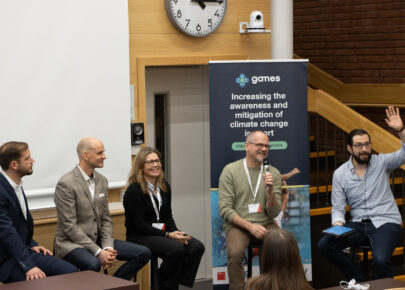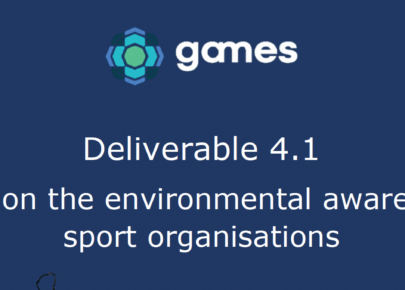The GAMES project joins WMTRC 2023 to measure its environmental footprint
One of the key tasks of the GAMES project foresees the calculation of the Environmental Footprint (EF) of the main activities conducted in the framework of a large sporting event among athletics, biathlon and floorball.
With this aim, researchers from SSSA, with the valuable help of World Athletics, will carry out the study of the Environmental Footprint of the World Mountain and Trail Running Championships (WMTRC) 2023, the world’s best athletic event for off-road runners, held in Innsbruck-Stubai from June 6 to 10, 2023. The Championship will gather elite athletes from all over the world that will compete outdoor in four different contests – Vertical, Trail Short, Trail Long, Mountain Classic.
SSSA research group will apply its extensive expertise in the calculation of the carbon and environmental footprints: for example, within another European project, SSSA researchers carried out the EF analysis of a football match of the famous Spanish professional football club Real Betis. This time they will undertake an even more innovative study: the calculation of the environmental footprint of an entire sporting event.
According to the literature review of technical reports and scientific articles performed by SSSA, this specific kind of research has never been carried out before, and it is certainly the first time that an athletic event will participate in such a study.
The analysis will encompass the whole environmental impact of the event, including and going beyond its carbon footprint. For instance, it will be based on the Life Cycle Assessment (LCA) methodology, which evaluates the environmental impacts associated to different environmental aspects (i.e. infrastructure, mobility and logistics, food and beverage, accommodation, equipment and materials, waste) at all stages of the event’s life cycle (before, during and after the event). Different environmental impacts are taken into account, including climate change through the calculation of the GHG emissions categorised in scope 1, 2, 3
World Athletics will support SSSA in identifying and selecting the activities and processes to account in the environmental footprint assessment (system boundaries). After defining the EF protocol, SSSA will carry out the collection and analysis of environmental data related to several activities carried out throughout the event. On-site visits will support the collection of data for each relevant process.
The results of the study will be published on the GAMES project website.
As both the global attention towards environmental sustainability and the popularity of this sport are growing, we expect this ambitious study to generate great interest from many stakeholders in the sports community.






